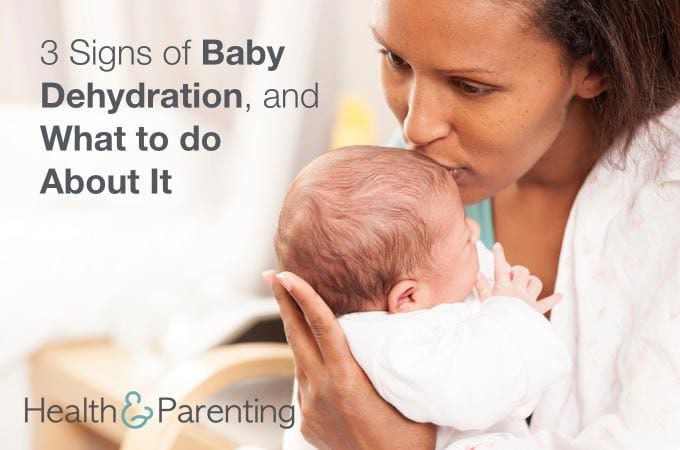Dehydration is never a good thing, and baby dehydration can be even scarier. That’s because your baby is relying on staying hydrated for appropriate weight gain and development, but also because babies are sometimes more susceptible to getting dehydrated as a result of diarrhea or vomiting.
Obviously, catching your baby’s dehydration as soon as possible is the first step to treating it. So how can you tell if your little one is lacking in fluids?
- Diapers: If it has been more than six hours since your baby’s last wet diaper, or if he or she isn’t producing between five and eight wet diapers in a 24-hour period, they are likely dehydrated. Another indicator might be the color and smell of the urine they are Darker, stronger-scented urine is a surefire sign of baby dehydration.
- Sunken Eyes and Fontanel: If your little one’s eyes appear sunken in, check to see if the fontanel is as well. This is the soft spot on your baby’s head that you have probably caressed a hundred times before. When both the eyes and fontanel are sunken in, it can be a sign of a lack of fluids.
- Dry Mouth: Just like you, your baby relies on hydration to keep their lips and mouth from becoming chapped and dry. So unusually chapped lips, or a mouth that seems to be absent of much saliva, can be an indication that your little one needs hydration.
If you suspect that your little one may be suffering from baby dehydration, one of the first things to do is call your pediatrician. They will likely ask you a few questions to determine just how dehydrated your baby is. Depending on the reason for dehydration, and how extensive the issue is, they may want to see your baby right away. Or, they may make some suggestions for trying to rehydrate your baby at home first.
Obviously, attempting to feed your baby breast milk or formula is probably the first thing to try, assuming he or she is not suffering from some type of stomach virus that led to the dehydration in the first place. Your doctor might also prescribe a special liquid to help replenish electrolytes.
If your baby is starting to appear lethargic or is exhibiting more serious signs of dehydration (excessive vomiting or fussiness, or crying without tears) skip the pediatrician and go straight to the emergency room. A severely dehydrated baby needs to be treated right away.
Written by Leah Campbell, infertility advocate, adoptive mama, writer and editor. Find me @sifinalaska on Twitter.
This information is not intended to replace the advice of a trained medical doctor. Health & Parenting Ltd disclaims any liability for the decisions you make based on this information, which is provided to you on a general information basis only and not as a substitute for personalized medical advice. All contents copyright © Health & Parenting Ltd 2016. All rights reserved.










